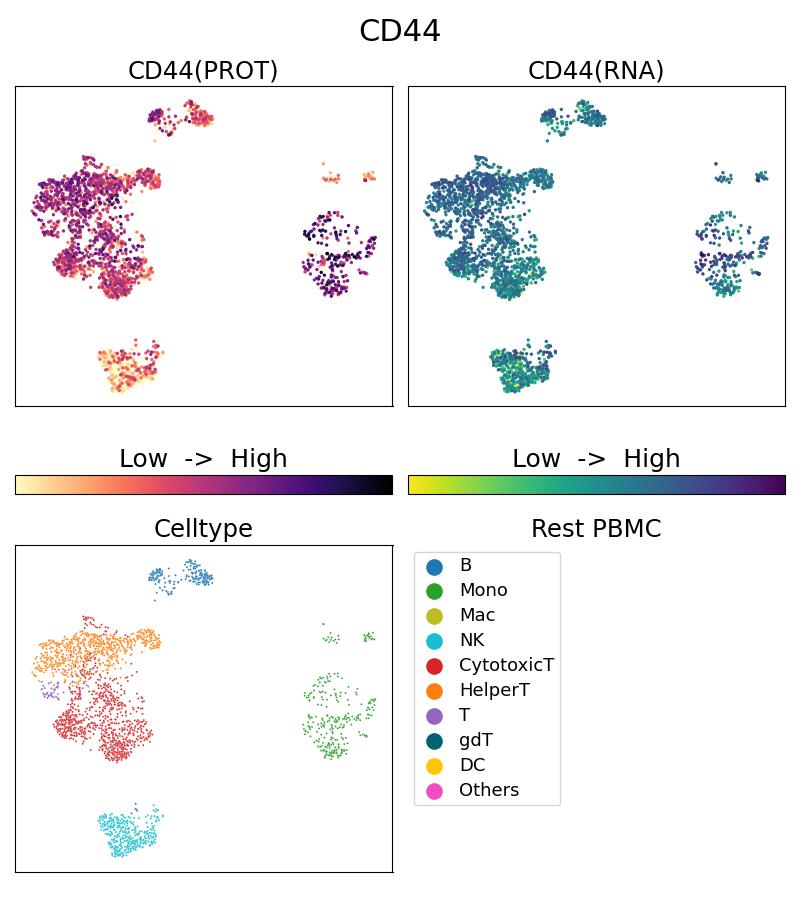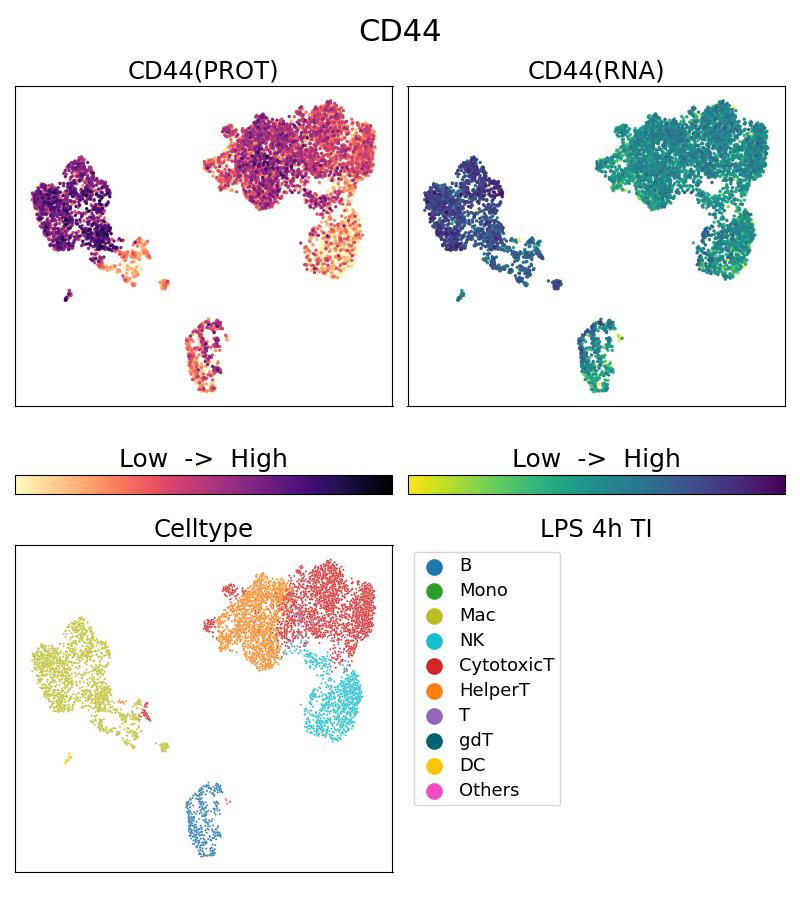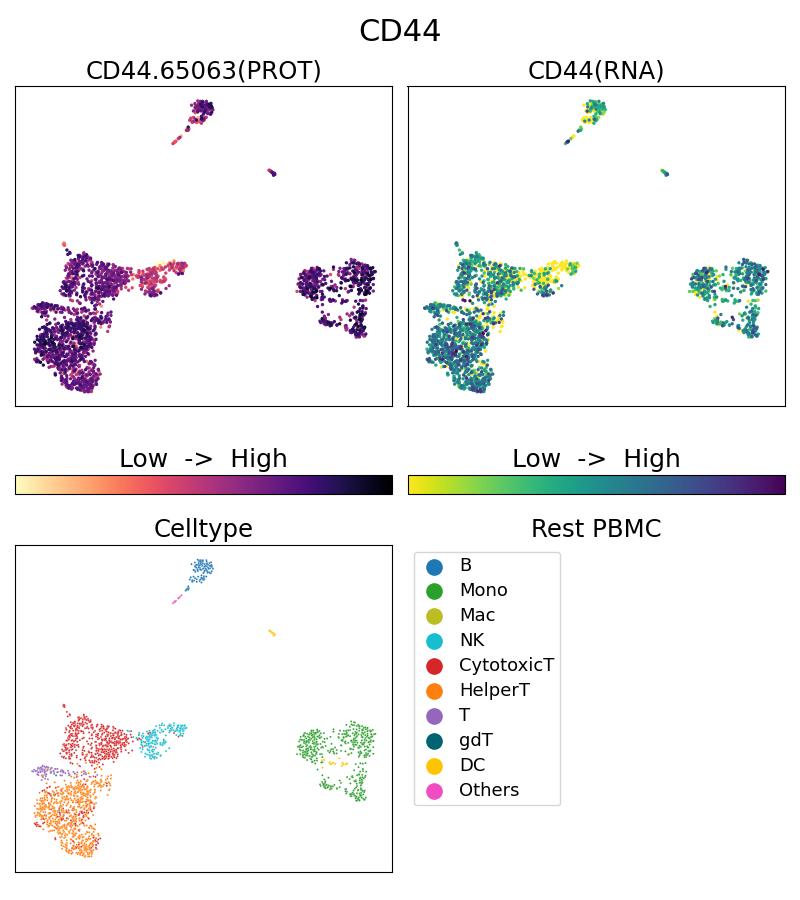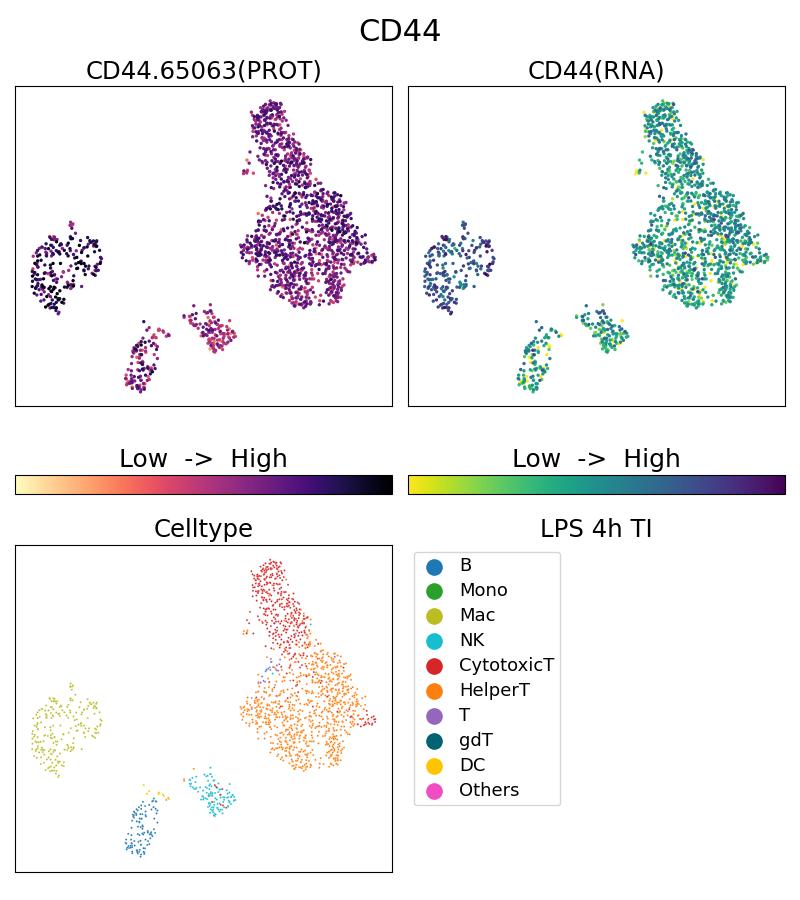Validation Data Gallery
Tested Applications
| Positive Single Cell (Intra) detected in | 10x Genomics Gene Expression Flex with Feature Barcodes and Multiplexing product. |
| Positive Single Cell detected in | 10x Genomics Gene Expression Flex with Feature Barcodes and Multiplexing product. |
Recommended dilution
| Application | Dilution |
|---|---|
| SINGLE CELL (INTRA) | <0.5ug/test |
| SINGLE CELL | <0.5ug/test |
| It is recommended that this reagent should be titrated in each testing system to obtain optimal results. | |
Product Information
G65063-1-5C targets CD44 in Single Cell (Intra), Single Cell applications and shows reactivity with Human samples.
| Tested Reactivity | Human |
| Host / Isotype | Mouse / IgG2a, kappa |
| Class | Oligo Conjugate |
| Type | Monoclonal |
| Immunogen |
Purified T cells from human lymph nodes 相同性解析による交差性が予測される生物種 |
| Full Name | MultiPro® 5CFLX Anti-Human CD44 (F10-44-2) |
| Calculated molecular weight | 742 aa, 82 kDa |
| GenBank accession number | BC004372 |
| Gene Symbol | CD44 |
| Gene ID (NCBI) | 960 |
| ENSEMBL Gene ID | ENSG00000026508 |
| RRID | AB_3673907 |
| Conjugate | 5CFLX |
| Full Oligo Sequence | CGGAGATGTGTATAAGAGACAGAACAGCGTGCCGATTCCCATATAAGAAA |
| Barcode Sequence | AACAGCGTGCCGATT |
| Form | |
| Form | Liquid |
| UNIPROT ID | P16070 |
| Storage Buffer | PBS with 1mM EDTA and 0.09% sodium azide {{ptg:BufferTemp}}7.3 |
| Storage Conditions | 2-8°C Stable for one year after shipment. |
Background Information
CD44 is a type I transmembrane glycoprotein expressed on embryonic stem cells and in various levels on other cell types including connective tissues and bone marrow. CD44 expression is also upregulated in subpopulations of cancer cells and is recognized as a molecular marker for cancer stem cells (PMID: 29747682). It is a cell-surface receptor that mediates cell-cell and cell-matrix interactions through its affinity for hyaluronic acid (HA) and possibly also through its affinity for other ligands (PMID: 10694938). Adhesion with HA plays an important role in cell migration, tumor growth and progression. CD44 is also involved in lymphocyte activation, recirculation and homing, and in hematopoiesis.
Protocols
| MultiPro™ Cell Surface and Intracellular Staining Protocol | Download protocol |
| 10x Genomics Cell Surface Protein Only Staining Protocol | Download protocol |




